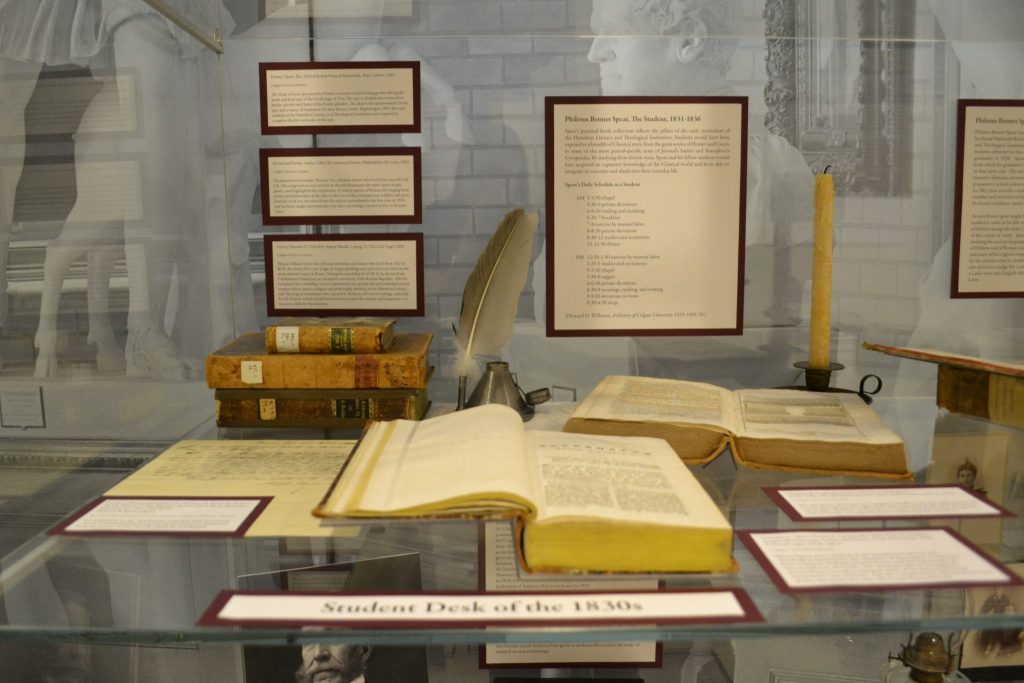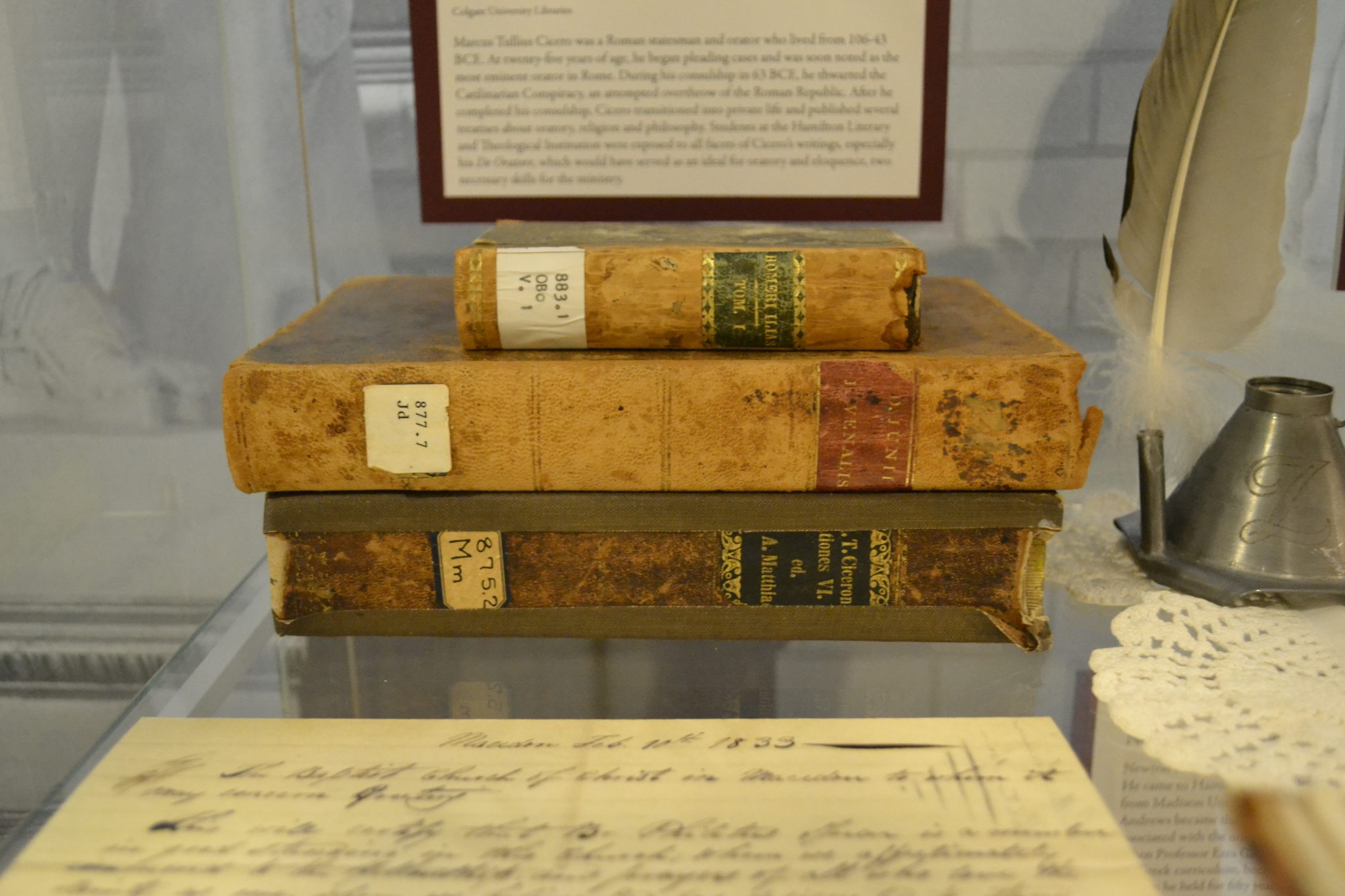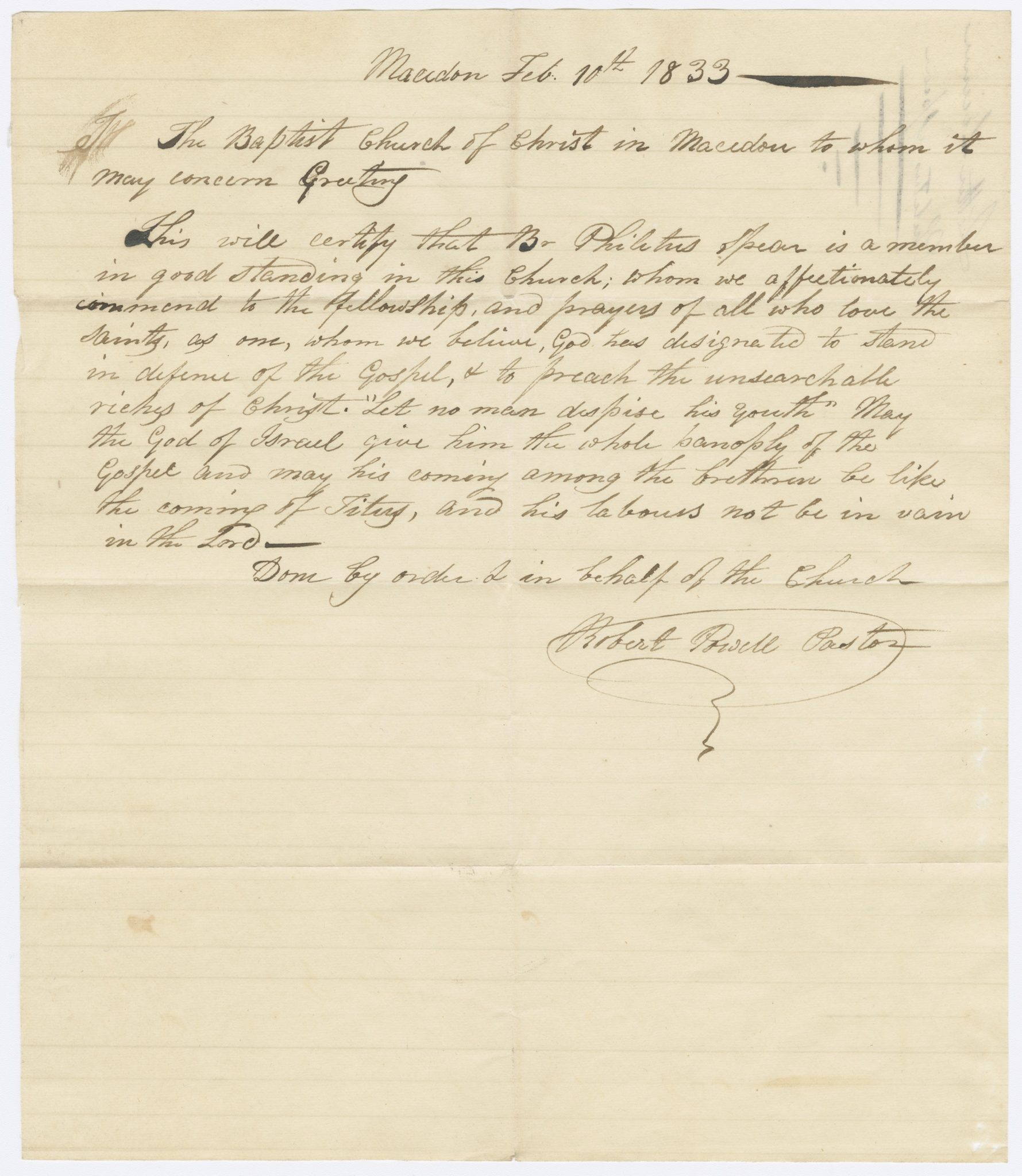Student Desk of the 1830s
In the 1830s, first-year students at the Hamilton Literary and Theological Institution were required to read traditional authors, such as Homer, Xenophon, Juvenal, Cicero, and Herodotus. Men came to the Institution in order to train to be a Baptist minister. Therefore, students at this time focused on learning Latin because it was thought to develop a student's intellect and character, Greek because it was the language of the New Testament, and Hebrew because it was the language of the Old Testament. All three were necessary in order to further their understanding of the Bible.
Daily Schedule of a Student in the 1830s
AM 5-5:30 chapel
5:30-6 private devotions
6-6:30 reading and studying
6:30-7 breakfast
7-8 exercise by manual labor
8-8:30 private devotions
8:30-12 studies and recitations
12-12:30 dinner
(Howard D. Williams, A History of Colgate University 1819-1969, 50.)
PM 12:30-1:30 exercise by manual labor
1:30-5 studies and recitations
5-5:30 chapel
5:30-6 supper
6-6:30 private devotions
6:30-9 meetings, reading, and writing
9-9:30 devotions in room
9:30-4:30 sleep
This is a schedule of a ministerial student in the 1830s. Much of a student's time was spent reading, studying, and in private devotions. From 5am to 9:30pm, the students were doing exercises that contributed to their education. Giving recitations was one of the ways in which a student's knowledge, progress, memorization, and oratorical skill was tested. The student had to memorize lines of a classical text and then stand up and recite the work or section in front of the class.
Recommendation Letter for Philetus B. Spear
For admission to the Institution, a student had to provide a letter recommending his good moral character and piety from the pastor of the church where he worshipped. The University Archives preserves such a letter of recommendation for Philetus B. Spear who entered the Hamilton Literary and Theological Institution as a student in 1831.


